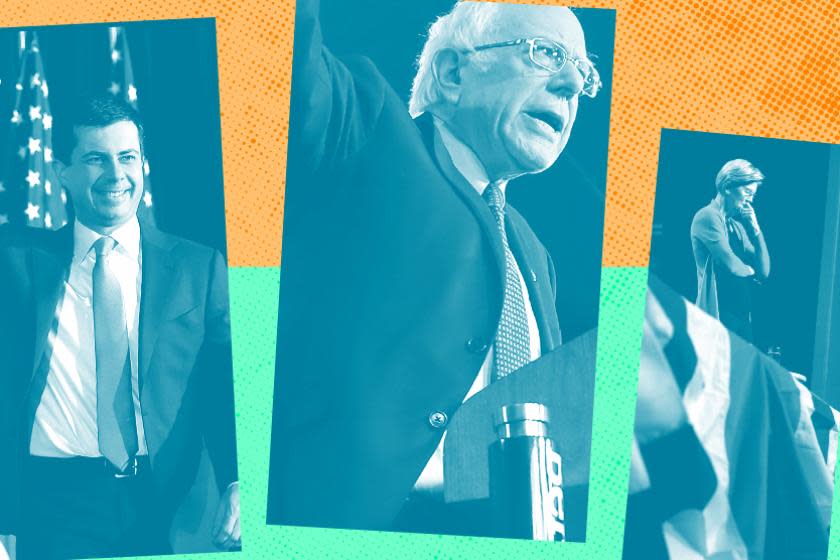What the early Iowa results suggest

It only took 21 hours, but we finally know which Democratic candidate is ahead in the Iowa caucus. I say "ahead" because a day later the digital gurus at the Iowa State Democratic Party and the DNC have only given us 62 percent of the precinct results for a contest that features roughly the number of voters as the annual CPAC straw poll. (Troy Price, the state party chair, has assured us that "a thorough, independent, and transparent investigation" of this debacle will follow — you know, in the days and weeks to follow when people are paying attention to everything except the Hawkeye State.)
Still: Early congratulations are probably due to Bernie Sanders and Pete Buttigieg. According to the most recent tally released early on Tuesday evening, Mayor Pete is in the lead with just under 27 percent of delegates to Bernie's 25 percent. Elizabeth Warren followed at 19 percent, with Joe Biden and Amy Klobuchar taking up the rear at roughly 16 and 13 percent respectively.
For both Buttigieg (who declared himself the winner 18 hours ago in a late-night speech to supporters) and Sanders (whose own internal numbers suggest that he'll win by a margin of around 3 percent) it can plausibly be considered a victory. If the final results show that Sanders actually won — or, indeed, perhaps especially if they show him losing the delegate race but winning the raw vote total, which is a plausible outcome — we should expect to hear a lot of carping from his supporters about Mayor Cheat and the idiots who attempted to run a caucus using an apparently free version of an app. In turn this will probably help to lead to a revival of 2016's counter-accusations that everyone slightly to the left of John Delaney and marginally less shot up with impeachment than Adam Schiff is a Russian troll bot. This is what democracy looks like.
What about Warren? The results so far, which don't show her leading any of Iowa's counties, suggest that for many voters she remains choice number two. This is not such a bad position in which to find oneself in a race that still features so many apparently viable candidates. The same, to a lesser extent, is true for Klobuchar, who despite an enormous fundraising disadvantage managed to achieve what looks like a virtual tie with a former vice president.
Which brings us to Joe Biden. There is no way around this: Finishing fourth in the Iowa caucus should be embarrassing to any candidate with anything like his name recognition. His path to winning the nomination involves South Carolina and a large number states on Super Tuesday. If Barack Obama is secretly willing to endorse Biden after all, he should consider doing so before the end of the month.
The most important question in this contest going forward continues to be how much the DNC is willing to do to prevent Sanders from winning the nomination. A 25 or 30 percent showing, which could increase to 35 or more if Warren dropped out, would be enough to carry him to victory in most states. But this would only be because moderate opposition to him is split between Biden, Buttigieg, Klobuchar (as long as she remains in the race anyway), and, eventually, Michael Bloomberg. There still appears to be an anti-progressive majority in the party. Whether it can be effectively mobilized will depend upon how soon the field can be narrowed to two or three candidates.
An inconclusive result in Iowa makes this less likely to happen soon.
More stories from theweek.com
Trump just won the Iowa Democratic caucuses
Should financial markets be freaked out by coronavirus?
America is doing so much better than you think

